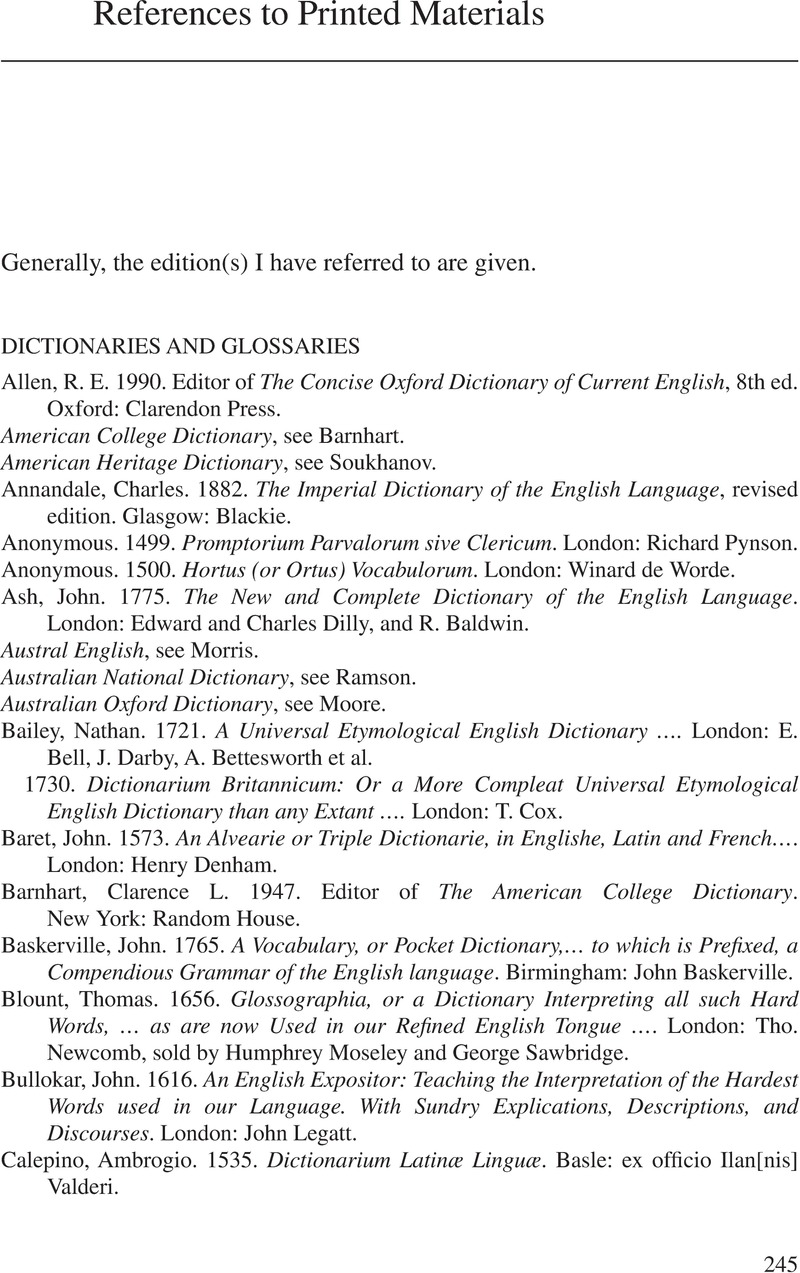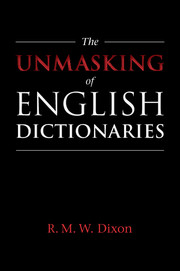Book contents
- The Unmasking of English Dictionaries
- Books by R. M. W. Dixon
- The Unmasking of English Dictionaries
- Copyright page
- Contents
- Abbreviations and Conventions
- Prologue: The Work in Advance
- 1 How the Language Is Made Up
- 2 What a Dictionary Needs to Do
- 3 Semantic Set: Finish, Cease, and Stop
- 4 Explaining Hard Words
- 5 Putting Everything In
- 6 Semantic Set: Big and Little, Large and Small
- 7 Spreading Wings
- 8 Semantic Organisation
- 9 Semantic Set: Fast, Quick, Rapid, Swift, Slow, and Speed
- 10 No Need to Keep Re-inventing the Wheel
- 11 The Nineteenth Century
- 12 Semantic Set: Want, Wish (For), and Desire
- 13 The Role of Grammar
- 14 Standing Still
- 15 The Way Forward
- Sources and Notes
- Chronological List of Dictionaries and Glossaries Mentioned
- References to Printed Materials
- Index
- References
References to Printed Materials
Published online by Cambridge University Press: 12 January 2018
- The Unmasking of English Dictionaries
- Books by R. M. W. Dixon
- The Unmasking of English Dictionaries
- Copyright page
- Contents
- Abbreviations and Conventions
- Prologue: The Work in Advance
- 1 How the Language Is Made Up
- 2 What a Dictionary Needs to Do
- 3 Semantic Set: Finish, Cease, and Stop
- 4 Explaining Hard Words
- 5 Putting Everything In
- 6 Semantic Set: Big and Little, Large and Small
- 7 Spreading Wings
- 8 Semantic Organisation
- 9 Semantic Set: Fast, Quick, Rapid, Swift, Slow, and Speed
- 10 No Need to Keep Re-inventing the Wheel
- 11 The Nineteenth Century
- 12 Semantic Set: Want, Wish (For), and Desire
- 13 The Role of Grammar
- 14 Standing Still
- 15 The Way Forward
- Sources and Notes
- Chronological List of Dictionaries and Glossaries Mentioned
- References to Printed Materials
- Index
- References
Summary

- Type
- Chapter
- Information
- The Unmasking of English Dictionaries , pp. 245 - 253Publisher: Cambridge University PressPrint publication year: 2018



